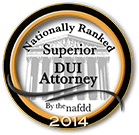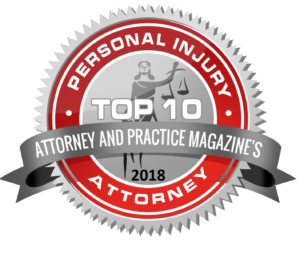Train accidents are rare but can be incredibly devastating when they occur. In Virginia, these types of incidents can result in serious injuries, property damage, and even loss of life. When such accidents happen, it becomes crucial to determine who is responsible for the crash and the resulting harm. Understanding how liability is determined in a train accident case is essential for those affected by these accidents, as it can impact the legal process of seeking compensation for damages. Whether you are a passenger, a pedestrian, or someone else affected by a train accident in Virginia, knowing the key factors involved in determining liability will help you navigate the complex legal landscape. At, NovaLegalGroup, P.C, we are here to guide you through the legal process and help you navigate the complexities of your case.

What Does Liability Mean in a Train Accident?
Liability refers to the legal responsibility someone has for the harm caused to another. In a train accident case, determining liability means identifying the party or parties whose actions or negligence contributed to the crash. It is a critical aspect of any train accident case because the party found liable can be held accountable for compensating victims for medical bills, lost wages, pain and suffering, and other related costs.
In train accidents, multiple parties may be involved, which can make liability more complicated. These parties may include the train company, the train’s operators, manufacturers of train parts, maintenance crews, or even other drivers or pedestrians. A thorough investigation is necessary to identify who is at fault for the accident.
Human Error as a Key Factor in Determining Liability
One of the most common causes of train accidents is human error. This can happen when the conductor, engineer, or another employee operating the train makes a mistake, such as failing to follow safety protocols, misreading signals, or operating the train under the influence of alcohol or drugs. If human error played a role in the crash, the person responsible could be found liable, but the train company may also be held accountable under the principle of employer liability.
Employer liability, also known as vicarious liability, means that a company can be held responsible for the actions of its employees if those actions occurred within the scope of their employment. Therefore, even if a train conductor is individually at fault for the crash, the company that employs them may also share liability.
Mechanical Failure and Equipment Defects
Another key factor that can determine liability in a Virginia train accident is whether mechanical failure or equipment defects played a role in the crash. Trains are complex machines that require regular maintenance and inspection to ensure they operate safely. If a part on the train, such as the brakes, wheels, or engine, fails during operation, it could lead to a catastrophic accident. In this case, the manufacturer of the faulty part, the maintenance company responsible for repairs, or the train company that failed to maintain the equipment could be held liable.
Sometimes, a manufacturer may design or produce a defective part that contributes to an accident. In such cases, product liability laws may apply, allowing victims to hold the manufacturer accountable for damages caused by the defective product.
The Role of Railroad Companies in Train Accident Liability
Railroad companies are required to ensure the safety of their trains, tracks, and operations. They must adhere to strict safety regulations, conduct regular inspections, and ensure their trains are properly maintained. If a railroad company fails to meet these responsibilities and this negligence contributes to a train accident, they can be held liable.
For example, if a company knew about a defect in the tracks but failed to repair it, and this defect caused a derailment, the company could be found responsible for the accident. Railroad companies may also be held liable if they fail to properly train their employees, fail to install appropriate safety systems, or push their workers to meet unrealistic schedules that lead to fatigue-related accidents.
Third-Party Negligence
In some cases, a third party may also be responsible for a train accident. This could include other drivers who failed to follow traffic signals at a train crossing or pedestrians who illegally crossed the tracks and caused the train to take sudden, dangerous action. Third-party negligence can complicate the process of determining liability, as the court will need to decide whether the third party shares full responsibility for the crash or if multiple parties, including the train company, are to blame.
If a driver’s vehicle becomes stuck on the tracks and a collision with the train occurs, determining liability may hinge on whether the driver was following all traffic rules or acting negligently. If the driver’s actions contributed to the accident, they could be held liable for the damages caused to the train and any passengers aboard.
Choosing a Personal Injury Attorney Personal Injury Case TimelineRelated Videos
Contributory Negligence in Virginia Train Accidents
Virginia follows a legal doctrine known as contributory negligence, which means that if a person is found to be even slightly at fault for their injuries, they may be barred from recovering any compensation. This can have a significant impact on train accident cases, especially if it is argued that the victim played a role in causing the accident or worsening their own injuries.
For example, if a pedestrian ignored warning signals and crossed the tracks illegally, they could be found partially responsible for the accident. In this case, they might not be able to recover damages even if the train operator was also at fault. Understanding how contributory negligence works in Virginia is essential for anyone involved in a train accident case because it can influence the outcome of their claim.
The Importance of Evidence in Proving Liability
Proving liability in a train accident case requires solid evidence. This includes gathering witness statements, reviewing train maintenance records, analyzing accident reports, and sometimes even working with accident reconstruction specialists who can determine how the crash happened. Physical evidence, such as skid marks, the condition of the tracks, or damaged train parts, can also play a crucial role in determining who is at fault.
In many cases, investigators will examine video footage from train cameras or nearby surveillance cameras to see exactly what happened leading up to the accident. This footage can provide clear proof of whether human error, mechanical failure, or third-party negligence was involved.
Government Involvement and Public Transportation Trains
If the train involved in the accident is operated by a public transportation company, such as Amtrak or a local commuter rail, the government may also play a role in the case. Government-operated trains are subject to strict regulations, and any failure to adhere to these regulations can result in liability for the government entity responsible for overseeing the trains. However, suing the government or a public transportation company can be more complex than suing a private train company, as there may be additional legal hurdles, such as shorter time frames for filing a lawsuit or specific requirements for proving negligence.
It is important for victims of train accidents involving public transportation to understand these additional complexities and seek legal guidance to navigate the process.
Seeking Compensation After a Virginia Train Accident
If you or a loved one has been injured in a train accident in Virginia, determining liability is just the first step in seeking compensation for your losses. Depending on the circumstances of the accident, you may be entitled to compensation for medical expenses, lost wages, pain and suffering, and more. However, because train accidents often involve multiple parties, such as train companies, manufacturers, and third parties, pursuing a claim can be a challenging and time-consuming process.
Victims should be aware that the statute of limitations in Virginia for filing a personal injury claim is generally two years from the date of the accident. This means that you have a limited amount of time to pursue compensation for your injuries, so it is important to act quickly.
Navigating the complexities of a train accident case and determining liability can be overwhelming, especially when you are dealing with the aftermath of an accident. If you or a loved one has been involved in a train accident, you do not have to go through the process alone. NovaLegalGroup, P.C. is here to help. With our experience and knowledge of Virginia’s legal system, we can assist you in determining who is responsible for your accident and ensure that you receive the compensation you deserve. Contact NovaLegalGroup, P.C. today to schedule a consultation and learn more about how we can help you with your case.










